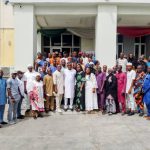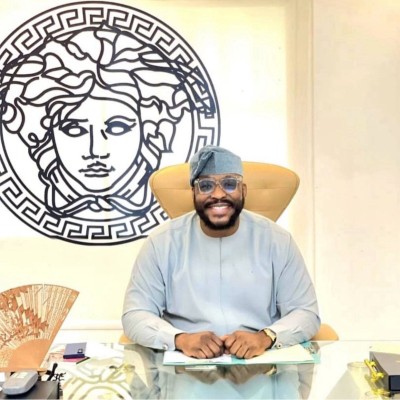Tax reform: Who speaks in our stead that the citizens shall believe?
By Dr. Mahmoud Alfa (PhD)
Under the Government of President Bola Ahmed Tinubu, Nigeria has been governed with bold and necessary economic reforms which are bringing about economic improvements in the lives and everyday welfare of the citizens, two years after, yet some citizens still doubt if the renewed hope agenda of the Government is real or if the President has come to enrich his friends at the expense of the citizens while keeping the whole country waiting endlessly on a renewed hope agenda.
It is a fact that Nigerians are largely under-taxed, compared to a lot of economies across the world, aside from the fact that Nigerians especially those involved in trade and commerce are also faced with the “perennial” problem of multiple-taxation.
While the Tinubu-led administration promises reforms to fix the multiple-taxation problems to at least improve the ease of doing business in Nigeria, a survey with the citizens will easily show that the change is not where it should be yet but there are positive improvements. In a way; the citizens, especially the traders are still faced with multiple-taxation as a reality.
This coupled with the new tax law taking effect on January 1, 2026 is sending palpable fears and feelings of unease among some of the citizens who still doubt the renewed hope agenda of Mr President Bola Ahmed Tinubu (GCFR).
Some of the citizens, especially the traders, feel they are over-taxed already and many of the citizens feel they cannot actually feel the impact of the taxes the Government collects directly or indirectly. Some of the citizens insist that they provide even security for themselves as they try to insist that the Government has failed them in terms of security which is supposed to be the first duty of any Government as directed by even the 1999 constitution of the Federal Republic of Nigeria (as amended).
The essence of taxation cannot be over-emphasized. Advanced nations all over the world owe a good number of their advancements to the taxes they collect from their citizens, but in Nigeria, it is still a dream yet to be achieved as Nigeria relies heavily on debt to fund most of its infrastructures and the citizens do not trust the Government enough with their taxes.
In Nigeria, the citizens will gladly evade tax and there are hardly cases of citizens being jailed for tax evasion. This shows that Nigerians are under-taxed compared to countries like the UK, Spain, among other developed economies of the world.
If Nigeria must indeed make the progress it desires to make, compared to the advanced economies of the world, the Government of Nigeria must be bold with its tax reforms and the citizens must pay their taxes, but there is the problem of mistrust between the citizens and the Government.
A conversation with some of the locals across the country will reveal that the citizens feel the people in the Government will steal their taxes if they (the citizens) indeed pay their taxes.
Nigerians are pathological with their desire to not pay taxes. Some even suggest the need to revert back to cash transactions if the Government starts to tax digital transactions.
There is a saying that “the Government is a representative of the people”. The people can argue that those in power may have at any point in time rigged their way into power but anyway, there is not much difference between the citizens and their representatives in Government, in terms of mindset. Refusing to pay tax is a crime same as stealing of the taxes is a crime. It is more of the chicken-and-egg situation. There is a clear nexus between the citizens and their representatives in Government at any point in time, be it a Government formed by the most rigged election or the most free-and-fair election at a time in the country.
In fact, there is a common saying that “those who are waiting to steal in the Government are more than those who are currently stealing in the Government”. The import of this is that the citizens and their representatives (who form some of the few bad eggs in a Government at a time) are both scheming to steal from the country at any random time. So, the argument that if the citizens pay their taxes, the Government will steal the taxes than utilize them like the Governments of advanced nations would do, well, that yet depends on how the average Nigerian in power can do away with the mentality of “it is my turn to steal” as it is a fact that the average Nigerian in power at any point in time who does not mean well for the country, is scheming to steal from the country while his or her time in power lasts.
So, the question then is not if it is right for the Government to impose deliberate and bold tax reforms on the citizens such that will see the country make more money from taxing the citizens, it is a question of who has the moral right to collect the taxes on behalf of the Government? It is a question of who can indeed speak the truth the way it is and the citizens will believe that the Government is sincere about the intent behind the tax reforms, else those who insist that they will even go offline (deal more in cash) if the Government tax them online (the use of digital payment platforms) may not be wrong even though it is wrong of them to attempt tax evasion, as perception is key in public trust and tax is a matter of public trust in the social contract between the Government and the citizens at any point in time.
Thus far, the head of the country’s tax reform, Mr Taiwo Oyedele, in his capacity as Chairman of the Presidential Committee on Fiscal Policy and Tax Reforms has done well with media engagements, to educate the citizens about the sincerity of the Government to do right by the citizens with their taxes this time around in the light of the forthcoming tax reform that will see to the country earning more money from taxes than ever before.
Anything less in terms of perception management by the Government may make it difficult for the citizens to readily embrace the forthcoming tax reform. A reliable person spearheading the conversation such as how Mr Taiwo Oyedele is currently doing, with the hope that the citizens are convinced enough, and with the hope that the Government is sincere enough about how it will indeed utilize the taxes to serve the citizens and not private pockets as a few fear as the Governments over the years in Nigeria have done a bad job with public perception management with how the Government can indeed be at the service of the citizens and not the other way around.
The Nigeria Government must increase its tax drive so as to generate sufficient revenue to meet its obligations to the citizens as the standard practice in advanced countries of the world, but the Government officials must live the truth that the Government will not steal the taxes and that the taxes will be adequately utilized strictly to service the needs of the citizens like adequate security, adequate electricity supply, adequate access to potable water supply, adequate access to quality healthcare, access to quality education, good road network, infrastructures, job creation, among many other obligations the Government owes the citizens as directed by the 1999 constitution (as amended).
Government officials must try to live modestly as their counterparts in advanced nations of the world. That alone will be a re-assuring message to the citizens that indeed the tax reform is reliable and not yet another scheme by some Government officials to enrich themselves at the expense of the citizens.
Dr. Mahmoud Alfa (PhD) is a Political Economist and a former Economic Adviser at World Bank











